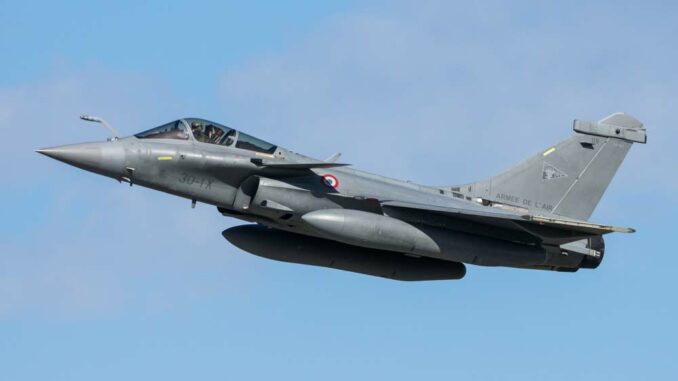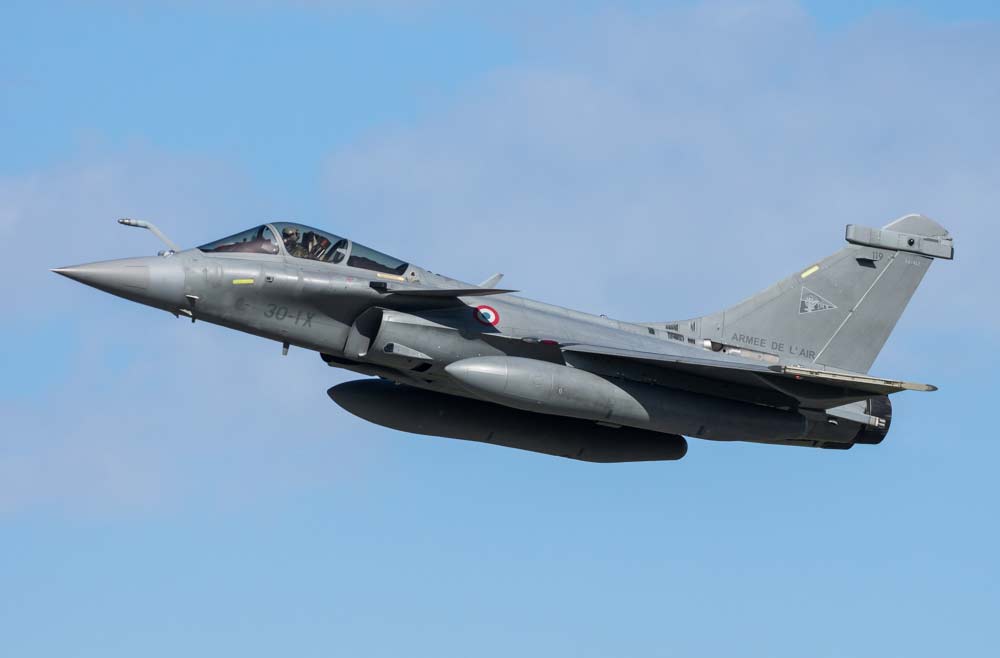
Saudi Arabia is exploring the possibility of purchasing 54 Rafale fighter jets from French manufacturer Dassault Aviation SA, according to a report in La Tribune. This decision could have a significant impact on the military balance in the Middle East, marking a major shift in Saudi Arabia’s military aircraft procurement policy.
Saudi Arabia, a key player in the Gulf region, is currently considering a major national defense decision: the purchase of 54 Rafale fighter jets from French manufacturer Dassault Aviation SA. This news was reported by La Tribune and has attracted international attention. In this article, we will examine the details of this potential acquisition, its implications for the regional military balance, as well as the reasons that led Saudi Arabia to consider this historic transaction.
Saudi demand for Dassault Rafales
According to La Tribune, Saudi Arabia has requested a proposal from Dassault Aviation for the purchase of 54 Rafale fighter jets. The deadline for submitting this proposal is November 10. This request testifies to Saudi Arabia’s growing interest in diversifying its military aircraft fleet by acquiring French-made fighter jets.
This decision is all the more remarkable given that Saudi Arabia has never ordered French military aircraft in the past. Saudi Arabia has traditionally purchased American and British fighter jets to meet its air defense needs. Thus, consideration of this Rafale purchase request suggests a major strategic shift in Saudi Arabia’s aircraft procurement policy.
Challenges for Dassault Aviation
While Saudi Arabia’s interest in Rafales is a welcome development for Dassault Aviation, the French company must approach this opportunity with caution. La Tribune reports that the Royal Saudi Air Force has historically depended on Boeing’s F-15 and Eurofighter aircraft produced by BAE Systems Plc and its German partners. These American and British aircraft have been at the heart of Saudi Arabia’s air defense for many years.
The transition to French Rafales would therefore represent a major logistical challenge, requiring the adaptation of infrastructures, training for Saudi military personnel and an overhaul of operational procedures. Dassault Aviation also needs to negotiate the price and terms of the deal so that it is competitive with other potential offers.

Implications for the regional military balance
If Saudi Arabia decides to buy Dassault Aviation’s 54 Rafales, it could have a significant impact on the military balance in the Middle East. At present, Saudi Arabia has a powerful fleet of fighter jets, mainly made up of American and British aircraft. The introduction of French Rafales into its fleet would be a game-changer.
Firstly, it could strengthen Saudi Arabia’s strategic independence by reducing its dependence on traditional suppliers of military aircraft. In addition, Rafales are known for their versatility and ability to carry out a variety of missions, from air defense to ground attack. This would give Saudi Arabia greater operational flexibility.
However, this decision could also trigger reactions from other regional players, particularly neighboring Iran. Saudi Arabia’s acquisition of Rafales could prompt other countries to strengthen their own military capabilities, which could create an arms race in the region, heightening already existing tensions.
Diplomatic consequences
Saudi Arabia’s potential Rafale purchase also raises complex diplomatic issues. Germany had previously suspended arms sales approvals to Saudi Arabia following the murder of journalist Jamal Khashoggi in the Saudi consulate in Istanbul. This decision had also affected negotiations for the sale of 48 Eurofighter aircraft to Saudi Arabia. The purchase of Rafales could be seen as a sign that Saudi Arabia is seeking to diversify its sources of military supplies to circumvent such diplomatic restrictions.
Moreover, Saudi Arabia has historically enjoyed close relations with the United States, particularly in the defense field. The acquisition of French Rafales could be interpreted as a sign of deterioration in this relationship. This could have repercussions for Saudi Arabia’s foreign policy and its role in the region.
Saudi Arabia is seriously considering the acquisition of 54 Rafale fighter jets from Dassault Aviation SA, marking a turning point in its military aircraft procurement policy. This decision could reshape the military balance in the Middle East, strengthening Saudi Arabia’s strategic independence while posing logistical and diplomatic challenges. It will be interesting to follow the evolution of this affair and its impact on regional stability in the months to come.